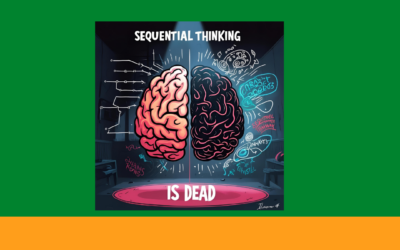During the most recent conversation with the taxi owner who picks me up from the train station to my parents’ house, she discussed how the AI implementation was going. She liked the automation aspect of it until she didn’t. What’s getting in the way of delighting her is the endless loop customers find themselves in when AI has reached its limits.
She’s not the only one who’s experiencing challenges with AI. I recently talked with a CMO of a startup. As the only marketing person in the company, she’s doing the work of 5 marketers, using agents. How is it going? It’s challenging.
Why? No matter how much we want to automate a process, humans are needed and critical throughout the process. In her case, AI may write the article, but she still has to check it to ensure it meets the standards she’s set. If AI creates the video and the speaker track doesn’t match the video track, it requires additional editing to fix it.
For both the small business taxi owner and the forward-leaning B2B CMO at a startup, AI has helped and challenged expectations for what it can do today. What both are also highlighting is the greater need for empathy.
In this case, empathy cuts two ways.
From the customer’s perspective, gone are the days of a one-size-fits-all approach. With AI, you must:
🔮 Proactively think about which segments of customers will do well with the automated solution.
🤝 Determine which customers will need some handholding.
⭐ Identify which experiences are so unique that human engagement is mandatory.
It’s something my taxi owner learned when dealing with different dialects. When AI struggled to understand the customer, she had to reroute those calls to her to manage.
The second way empathy matters from the end user’s perspective.
When setting up agents and thinking about the workflows, we:
⏰ Underestimate the amount of time it takes to get the workflow right.
🔄 Identify when human intervention is necessary and when it’s not.
🌊 Overestimate how much can be done without the staff managing the multiple workstreams.
The over-reliance on technology can come at the expense of personal burnout.
As we continue this journey with AI, we can celebrate the speed at which things can get done.
However, we also must recognize that we still need humans involved in the process, as Klarna learned. This means empathy must always have a seat at the table. Otherwise, customers and employees reject or slow down the implementation of AI.
Ready to discuss how to begin your AI journey or navigate the challenging moments? Schedule a Discovery Session, and together we can build your growth strategy.





